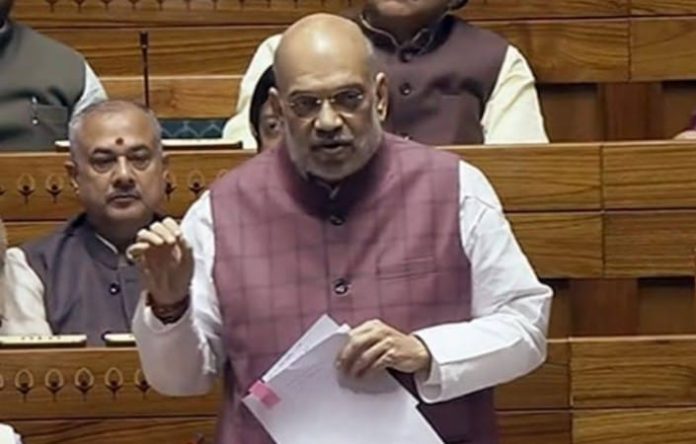
Pradeep ramteke
Chief editor
The Indian Judicial Code and Civil Defense Code laws passed by the Parliament have been challenged in the Supreme Court.In the petition filed in the Supreme Court, a committee has been formed under the chairmanship of a retired judge of the Supreme Court and a demand has been made to examine the new law.
Let us tell you that three new laws – Indian Judicial Code,Indian Civil Defense Code and Indian Evidence Act will replace three colonial era laws – Indian Penal Code, Code of Criminal Procedure and Indian Evidence Act of 1872.
In the petition filed in the Supreme Court, a demand has been made to ban this new law also. This petition has been filed by Supreme Court lawyer Vishal Tiwari. In the petition filed in the court, it has been said that when this law was presented in the Parliament,there was no extensive discussion in the Parliament at that time, because most of the MPs were suspended at that time.
It is noteworthy that President Draupadi Murmu had approved the three new criminal justice bills passed by the Parliament on Monday i.e. 25th December.
According to the notification,the laws will come into force from the date the Central Government issues a notification in the Official Gazette and different dates may be fixed for different provisions of this Code.
Responding to the discussion on the three bills in Parliament, Union Home Minister Amit Shah had said that the emphasis of these bills is not on punishing like the previous laws, but on providing justice.
He said that the objective of these laws is to bring about a radical change in the criminal justice system in the country by defining various crimes and their punishment. In these, a clear definition of terrorism has been given,treason has been abolished as a crime and a new section titled ‘Offences against the State’ has been added. These bills were first introduced in the monsoon session of Parliament in August. After several recommendations were made by the Standing Committee on Home Affairs, the government decided to withdraw the bills and introduced a new version of them last week.
Shah had said that the three bills have been prepared after extensive deliberations and he has looked at every comma and full stop of the draft bills before presenting them in the House. The Indian Judicial Code has listed crimes like acts of separatism, armed rebellion,subversive activities,separatist activities or endangering sovereignty or integrity under the new incarnation of the sedition law.
According to the laws, if any person by words or signals or visual representation or electronic communication or financial or other means intentionally incites or tries to incite separatism or armed rebellion or subversive activities or the spirit of separatist activities or the sovereignty and unity of India Incites to endanger the integrity of a person, such act shall be punishable with imprisonment for life or with imprisonment which may extend to seven years, and may also be liable to fine.
According to Section 124A of the Indian Penal Code related to treason, there is a provision of life imprisonment or three years of jail for the person involved in the crime.According to the new laws, the word ‘treason’ has been replaced by ‘treason’. Also, for the first time the word terrorism has been explained in the Indian Judicial Code.
It was not defined in the Indian Penal Code. Under the new laws, along with imposing fines, the powers of the magistrate to declare someone a declared criminal have been increased.





